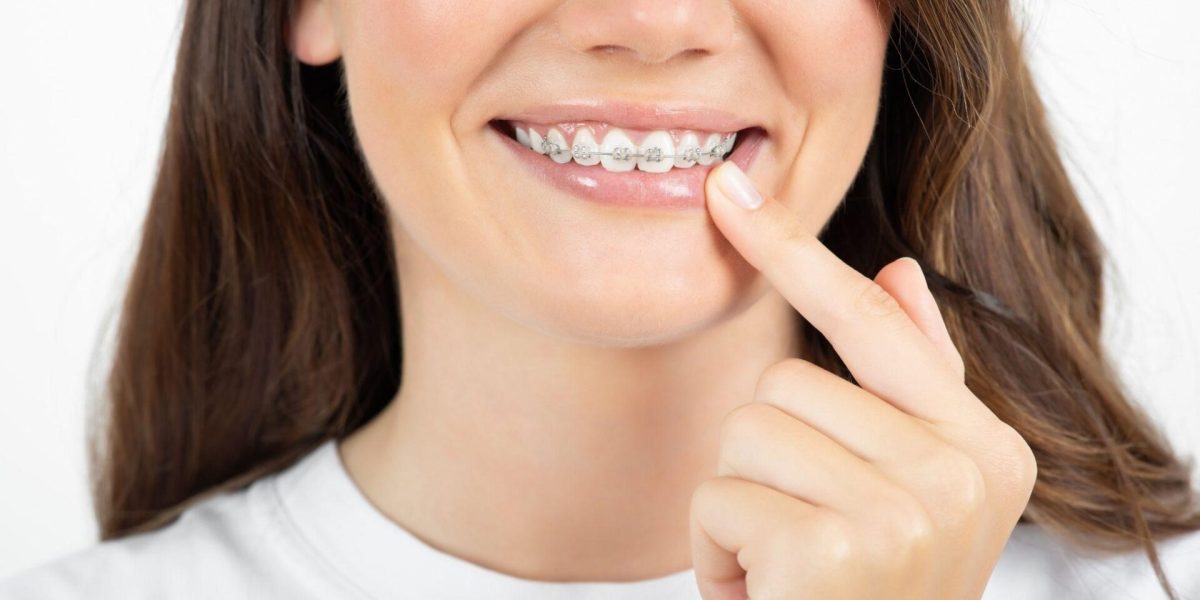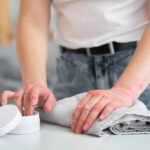Wearing dental braces is a significant step toward achieving a straighter smile, but it also introduces new challenges to your daily oral care. Brackets, wires, and other orthodontic components can trap food particles and make it more difficult to clean your teeth effectively. Patients undergoing treatment with the Best Teeth Braces in Dubai are often advised to modify their oral hygiene routines to prevent cavities, gum disease, and staining during the course of their orthodontic journey. With the right tools and techniques, maintaining excellent oral health while wearing braces is entirely possible.
Brushing with Braces:
Brushing becomes more meticulous once braces are in place. Food and plaque tend to collect around brackets and wires, requiring more time and precision to ensure a thorough clean. Brushing should be done after every meal to remove debris and protect the enamel.
-
Use a soft-bristled or orthodontic toothbrush for gentle but effective cleaning
-
Angle the brush at 45 degrees above and below the brackets
-
Brush each tooth individually, especially around wires and brackets
-
Spend at least 2 minutes brushing, covering all surfaces
Flossing Around Braces:
Flossing with braces may seem complicated at first, but it’s essential to prevent plaque buildup between teeth and under the gumline. Specialized tools make it easier to floss effectively even with wires in the way.
-
Use floss threaders or orthodontic floss to navigate between wires
-
Consider a water flosser for quicker, more convenient flossing
-
Floss once daily to maintain gum health
-
Be gentle to avoid damaging wires or irritating the gums
Choosing the Right Oral Hygiene Tools:
Having the correct tools can make your oral hygiene routine significantly easier and more efficient. Several devices are specifically designed to help people with braces clean their teeth thoroughly.
-
Interdental brushes help clean tight spaces around brackets
-
Orthodontic toothbrushes have V-shaped bristles for better access
-
Water flossers use pressurized streams to remove plaque and debris
-
Fluoride mouthwash can strengthen enamel and reduce decay risk
Impact on Gum Health:
Braces can increase the risk of gingivitis, especially if oral hygiene isn’t up to standard. Swollen, bleeding gums are often a sign of plaque buildup around the brackets and along the gumline.
-
Brush carefully along the gumline to prevent inflammation
-
Rinse with an antibacterial mouthwash to reduce bacteria
-
Regular dental cleanings help manage gum health during treatment
-
Stay consistent with your brushing and flossing habits
Importance of Rinsing and Fluoride:
Rinsing with a fluoride mouthwash strengthens your teeth and helps wash away debris left behind after brushing and flossing. It’s especially helpful in protecting areas that are harder to reach with a toothbrush.
-
Choose a fluoride-based rinse approved by dental professionals
-
Use mouthwash daily to reduce bacteria and strengthen enamel
-
Swish for at least 30 seconds for optimal effectiveness
-
Avoid eating or drinking for 30 minutes after rinsing
Preventing Stains and Decalcification:
White spots, or decalcification, occur when plaque sits on the enamel for too long. These spots can remain visible even after braces are removed, so preventing them should be a priority throughout treatment.
-
Avoid sugary snacks and beverages that contribute to plaque buildup
-
Brush thoroughly around brackets and wires
-
Use fluoride toothpaste to keep enamel strong
-
Schedule professional cleanings every 6 months or as advised
Adjusting to New Habits:
Adapting your oral hygiene routine can take time, but developing the right habits early on helps maintain a healthy mouth throughout your orthodontic treatment. Routine, discipline, and awareness are key.
-
Establish a fixed routine for brushing and flossing
-
Set reminders if you often forget to brush after meals
-
Travel with a dental hygiene kit for on-the-go cleaning
-
Be patient as your routine becomes second nature
Diet’s Role in Oral Hygiene with Braces:
Your diet directly affects your oral health, especially when wearing braces. Certain foods can damage orthodontic appliances or make cleaning more difficult, so mindful eating is crucial.
-
Avoid sticky, hard, or crunchy foods that can get stuck or break brackets
-
Cut hard fruits and vegetables into smaller, manageable pieces
-
Drink water frequently to rinse away food particles
-
Limit sugary snacks and drinks to reduce plaque buildup
Regular Orthodontic and Dental Checkups:
Routine visits to both your orthodontist and general dentist are essential for maintaining oral health with braces. These appointments ensure that your treatment stays on track and that any issues are addressed early.
-
Orthodontic visits typically occur every 4–8 weeks
-
Dental checkups and cleanings should continue every 6 months
-
Report any broken wires or brackets immediately
-
Clinics offering the Best Teeth Braces in Dubai often provide integrated care and hygiene monitoring
Final Thoughts:
Dental braces require a committed oral hygiene routine, but the rewards—a straighter, healthier smile—are well worth the effort. By investing time in brushing, flossing, rinsing, and making smart food choices, you can avoid common issues like decay, gum disease, and stains. The key is consistency, patience, and using the right tools for the job. If you’re receiving care from providers offering the Best Teeth Braces in Dubai, you’ll benefit from expert guidance, tailored hygiene plans, and access to orthodontic tools that make the process easier. With the right approach, you can maintain excellent oral health throughout your braces journey and beyond.












